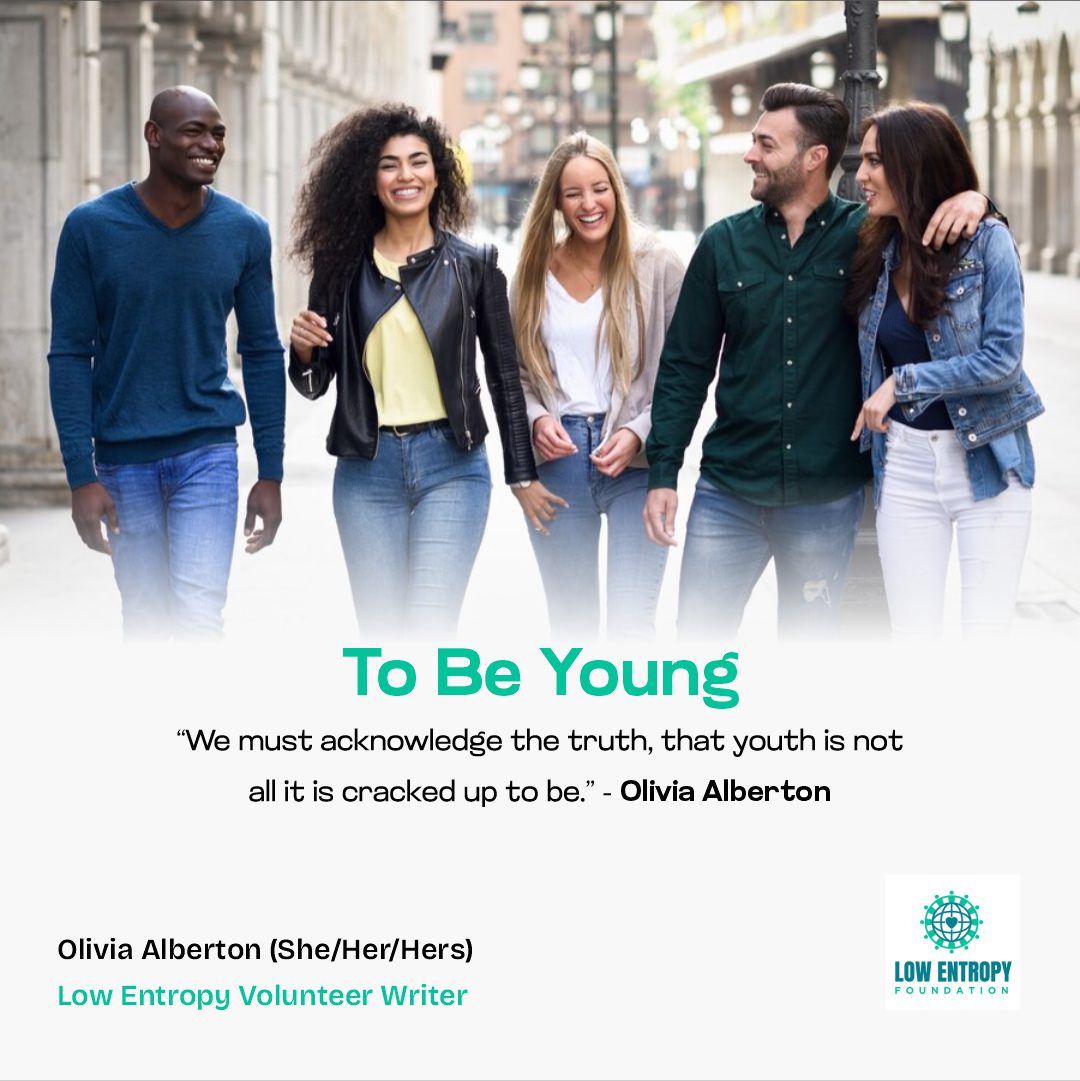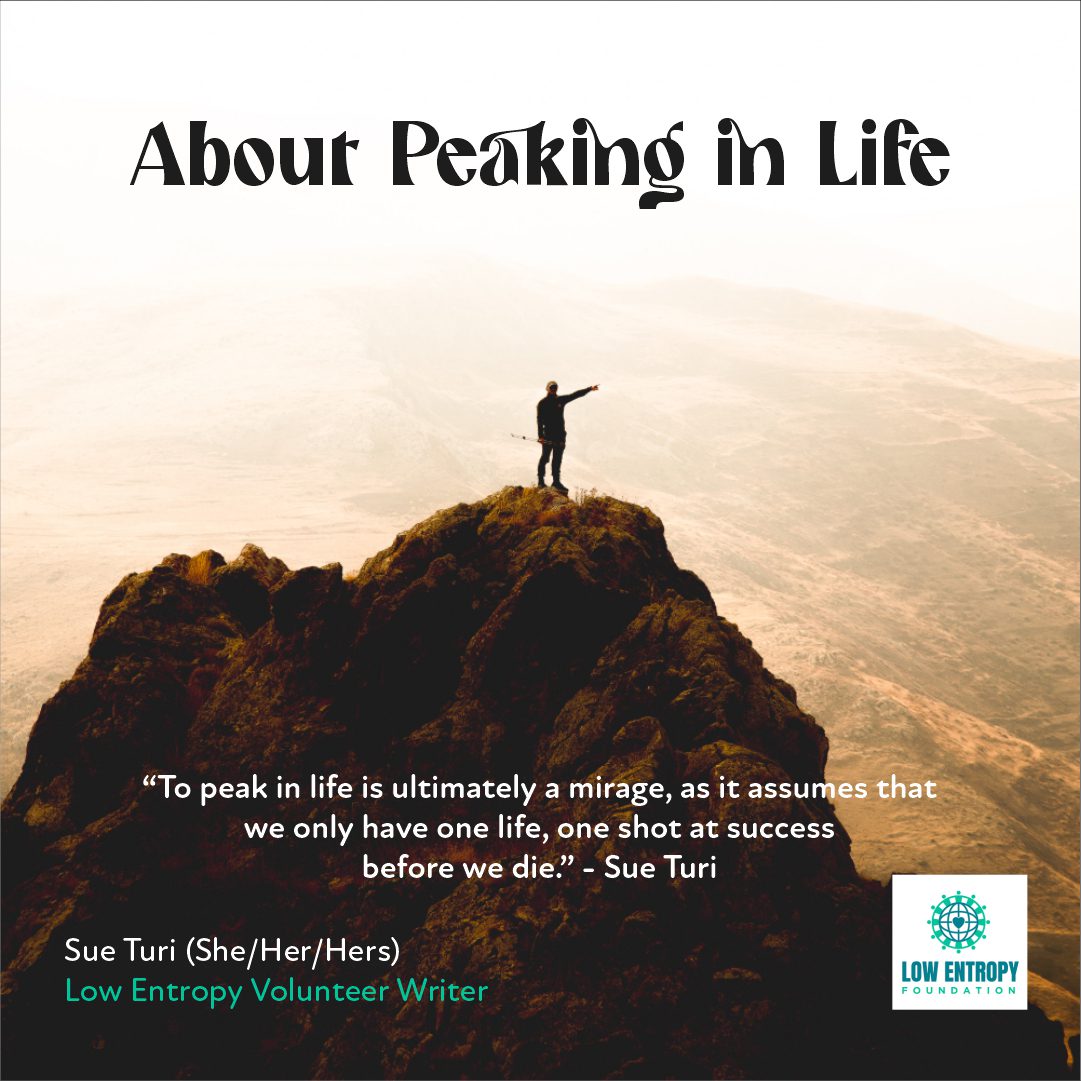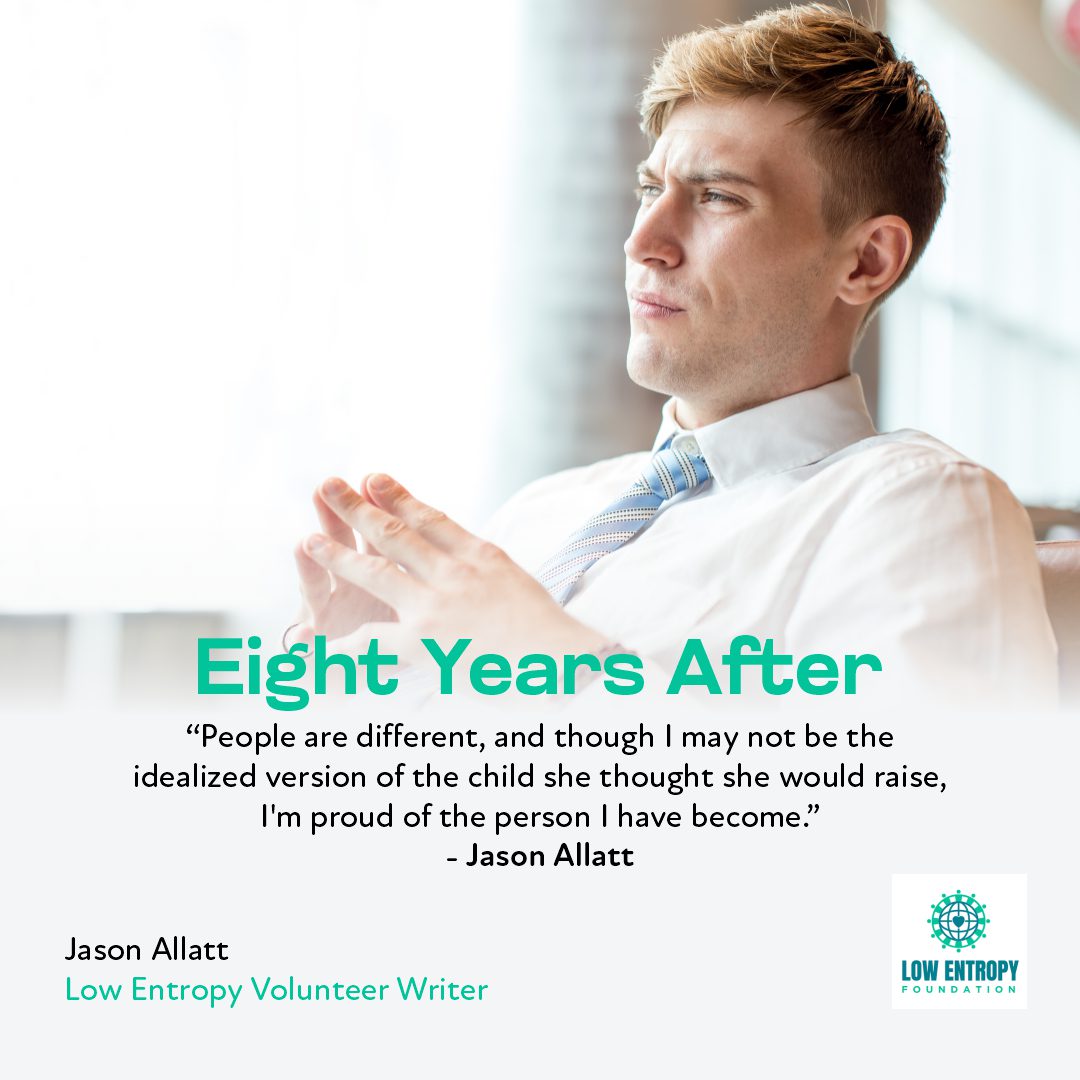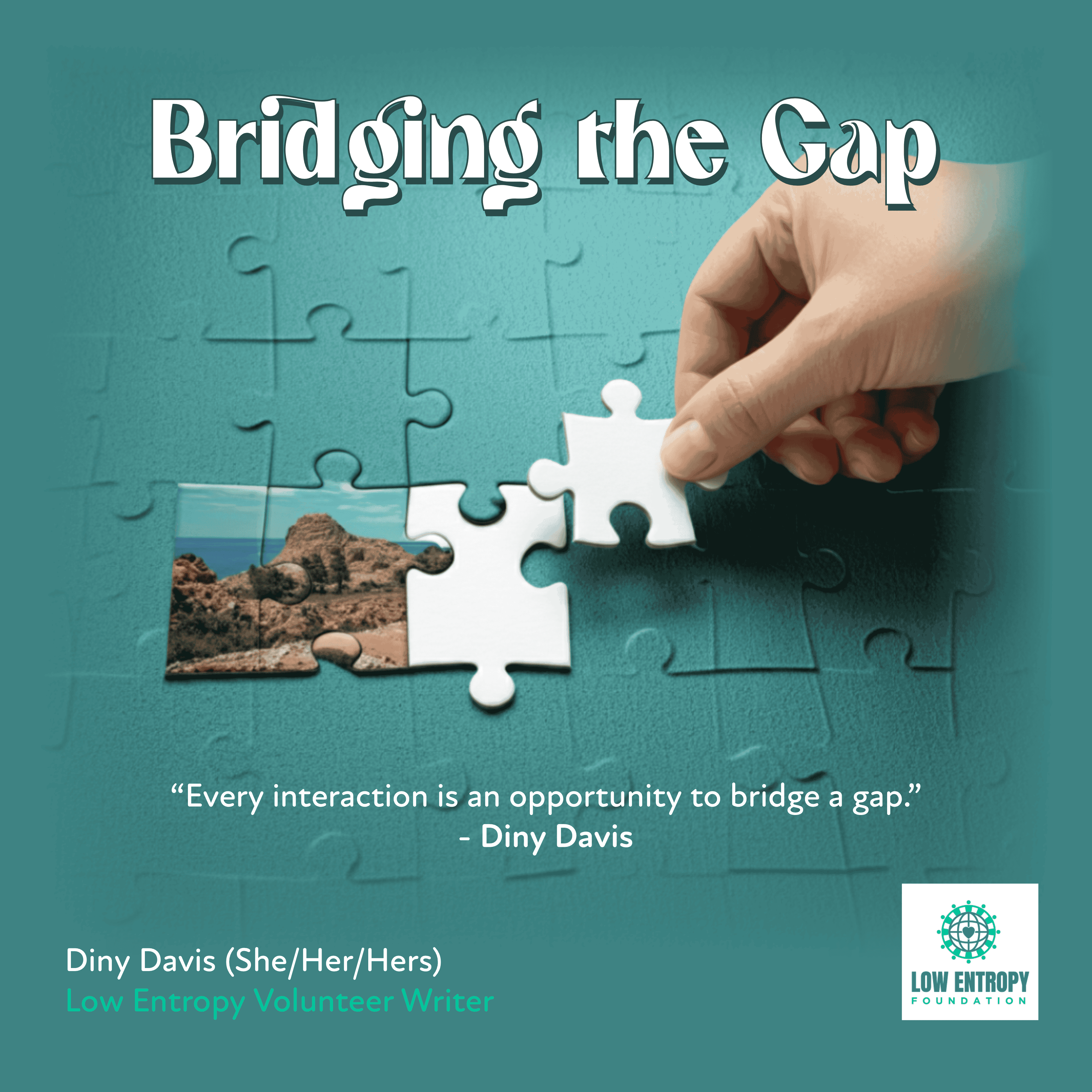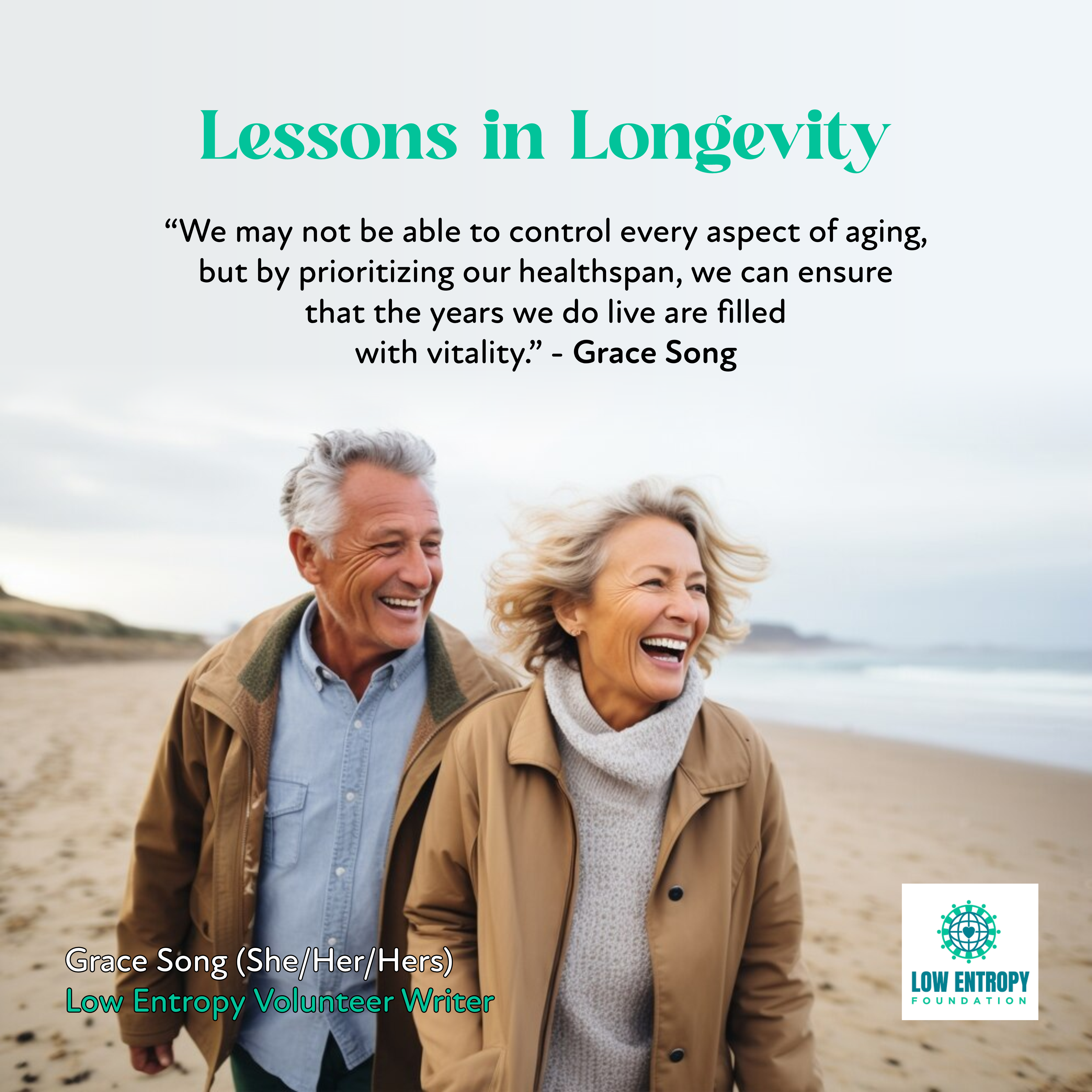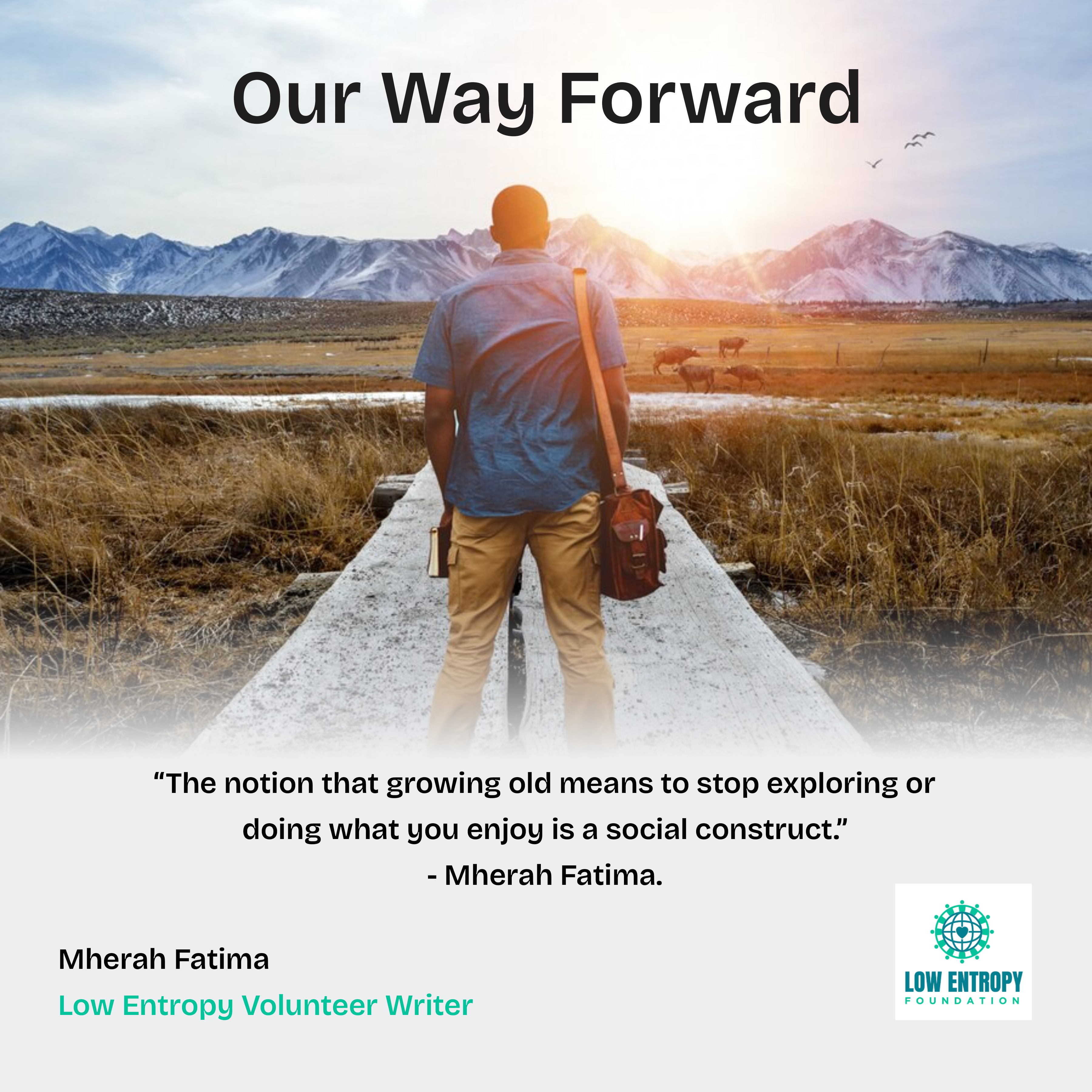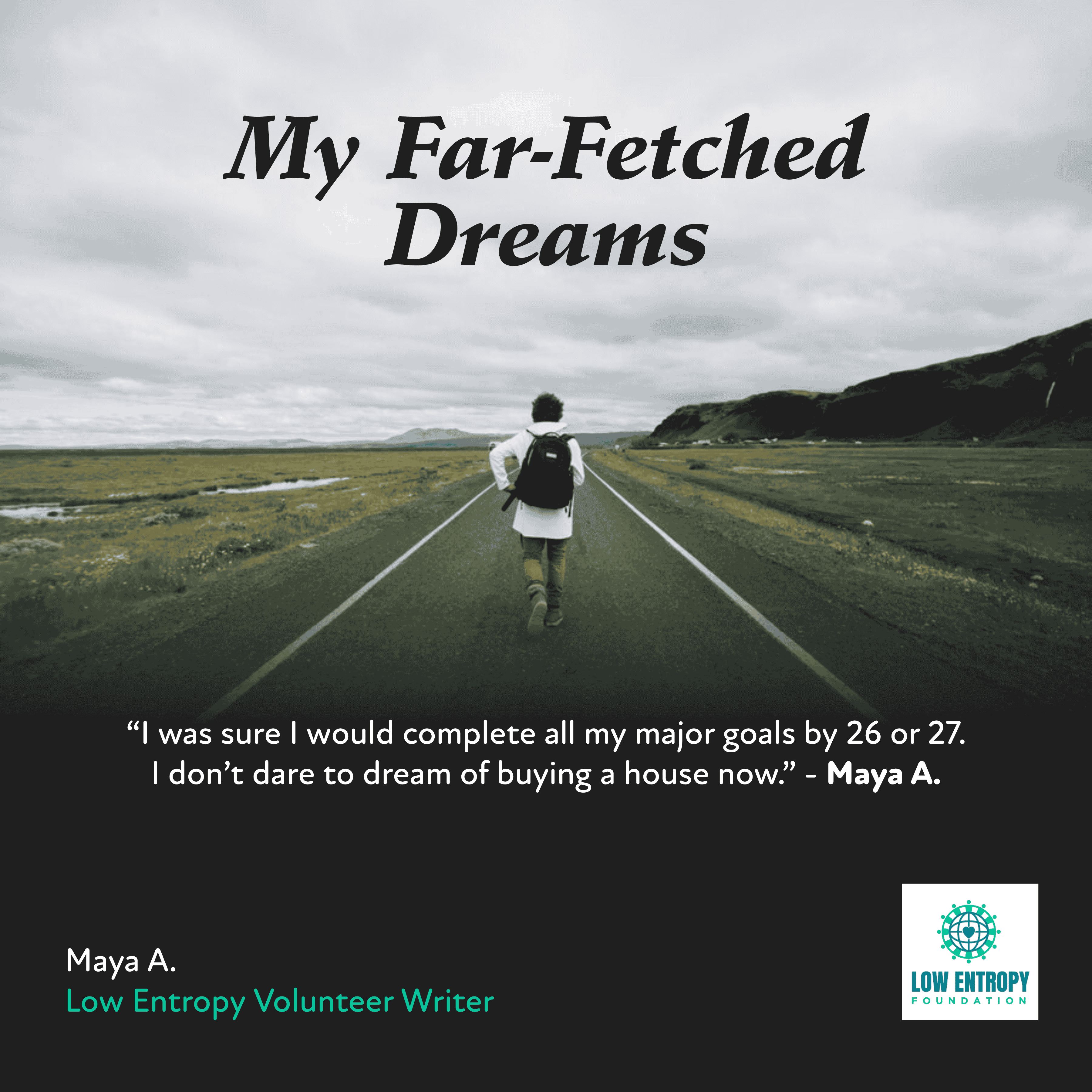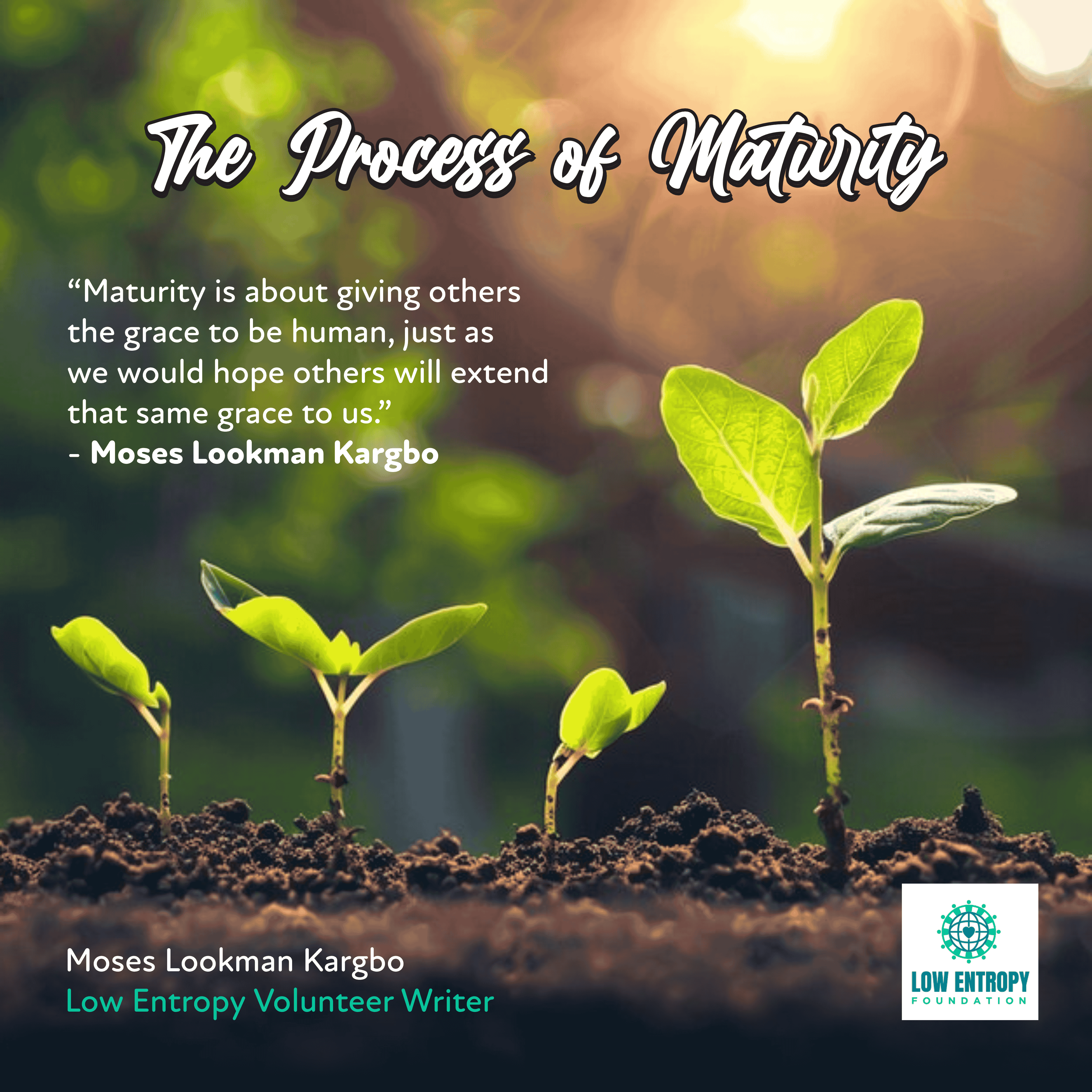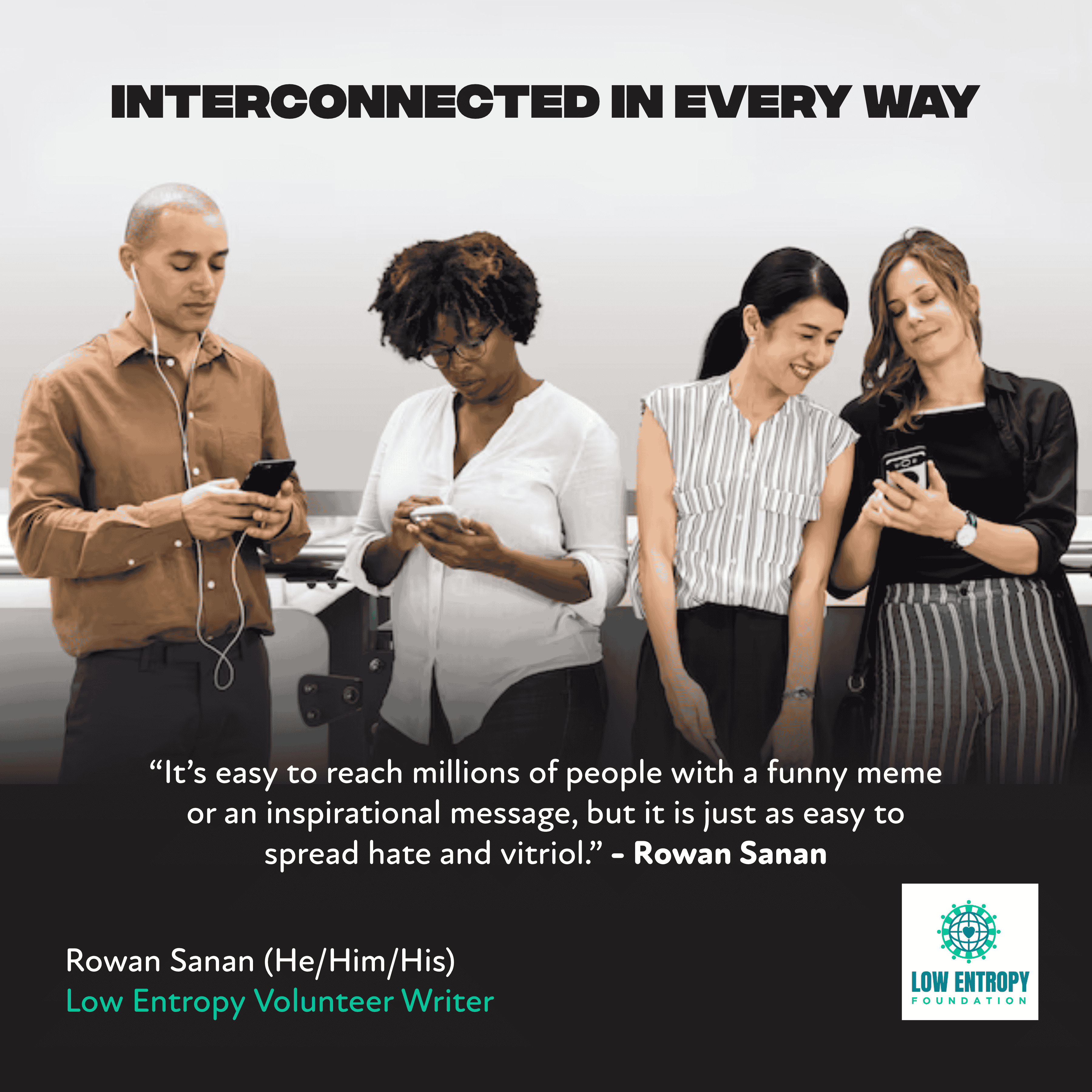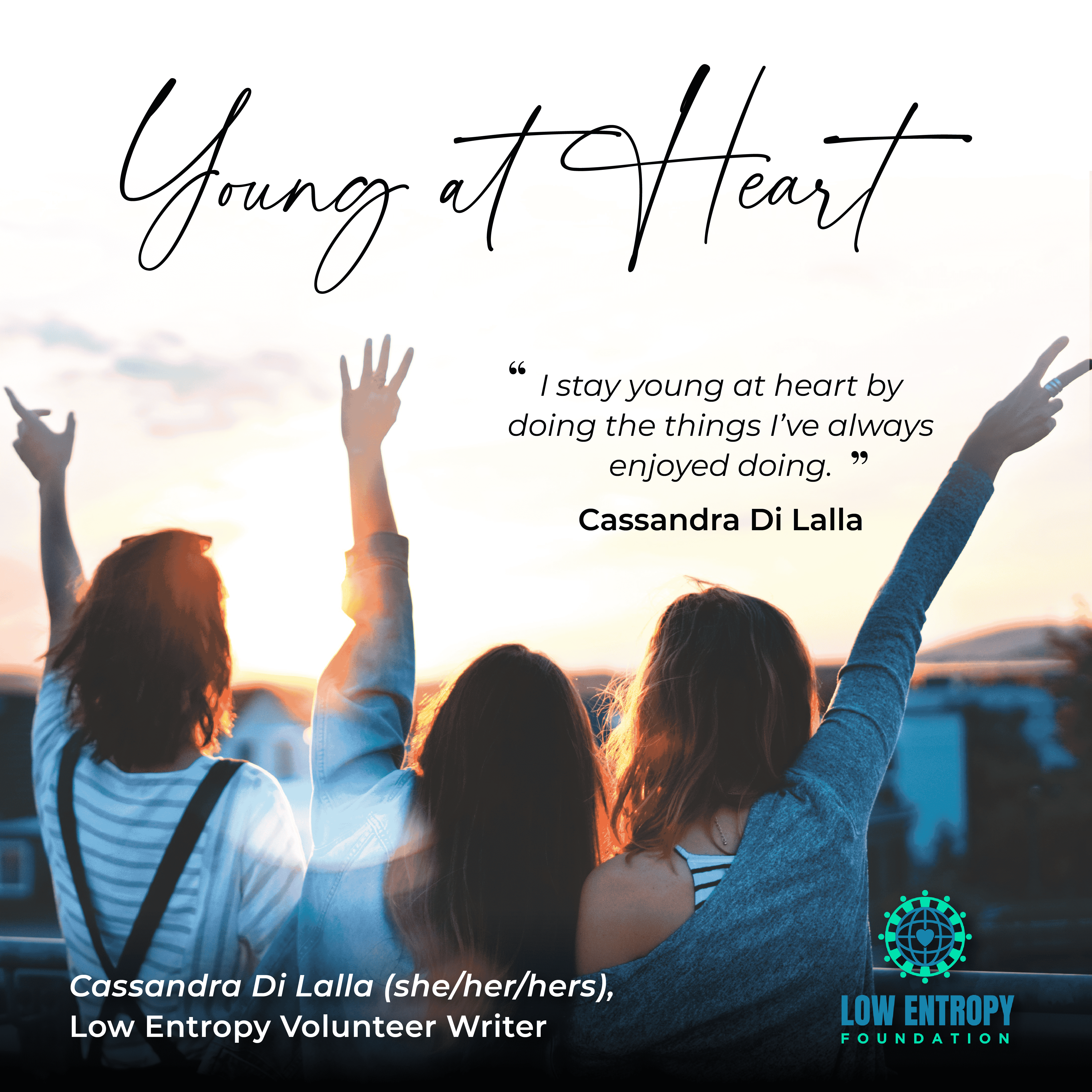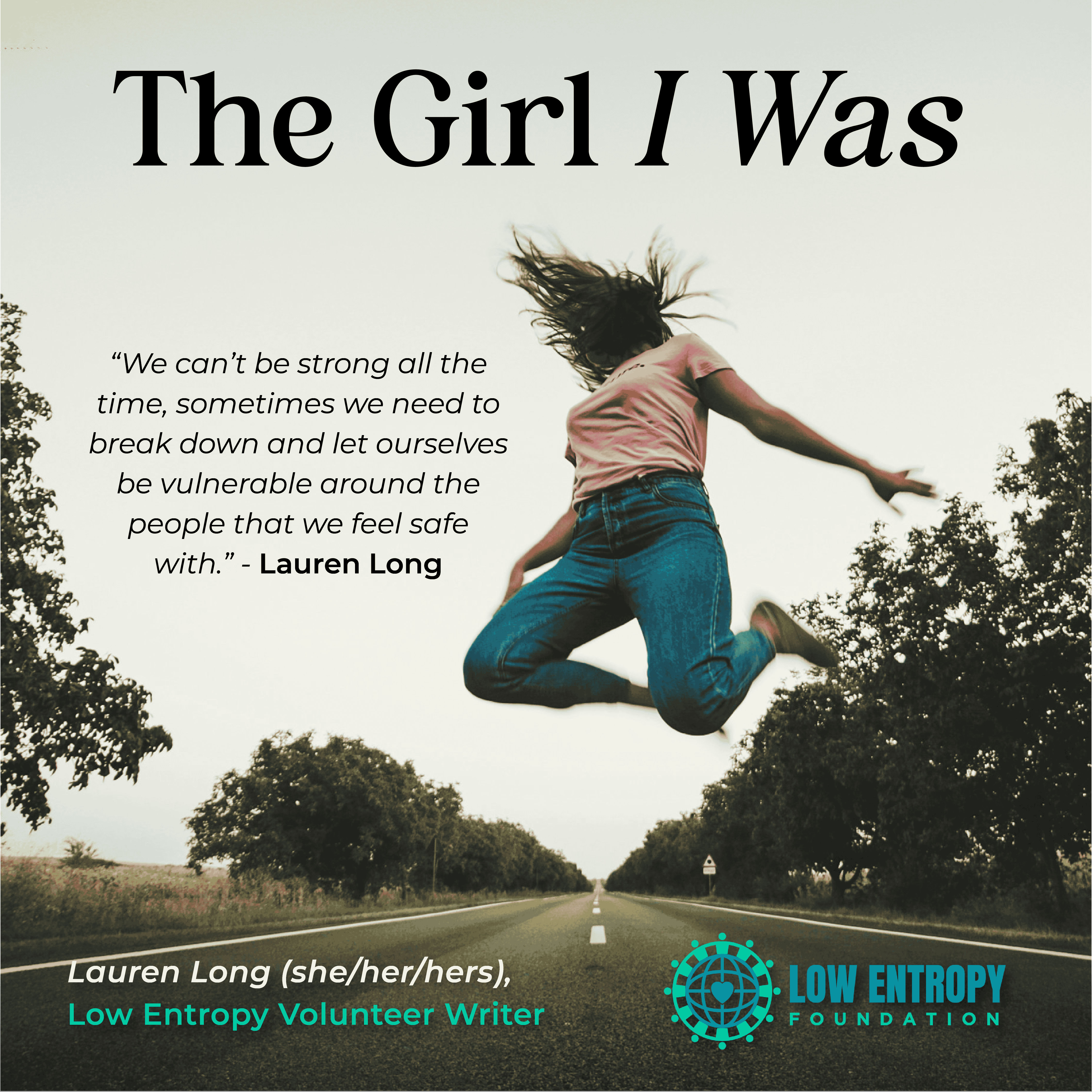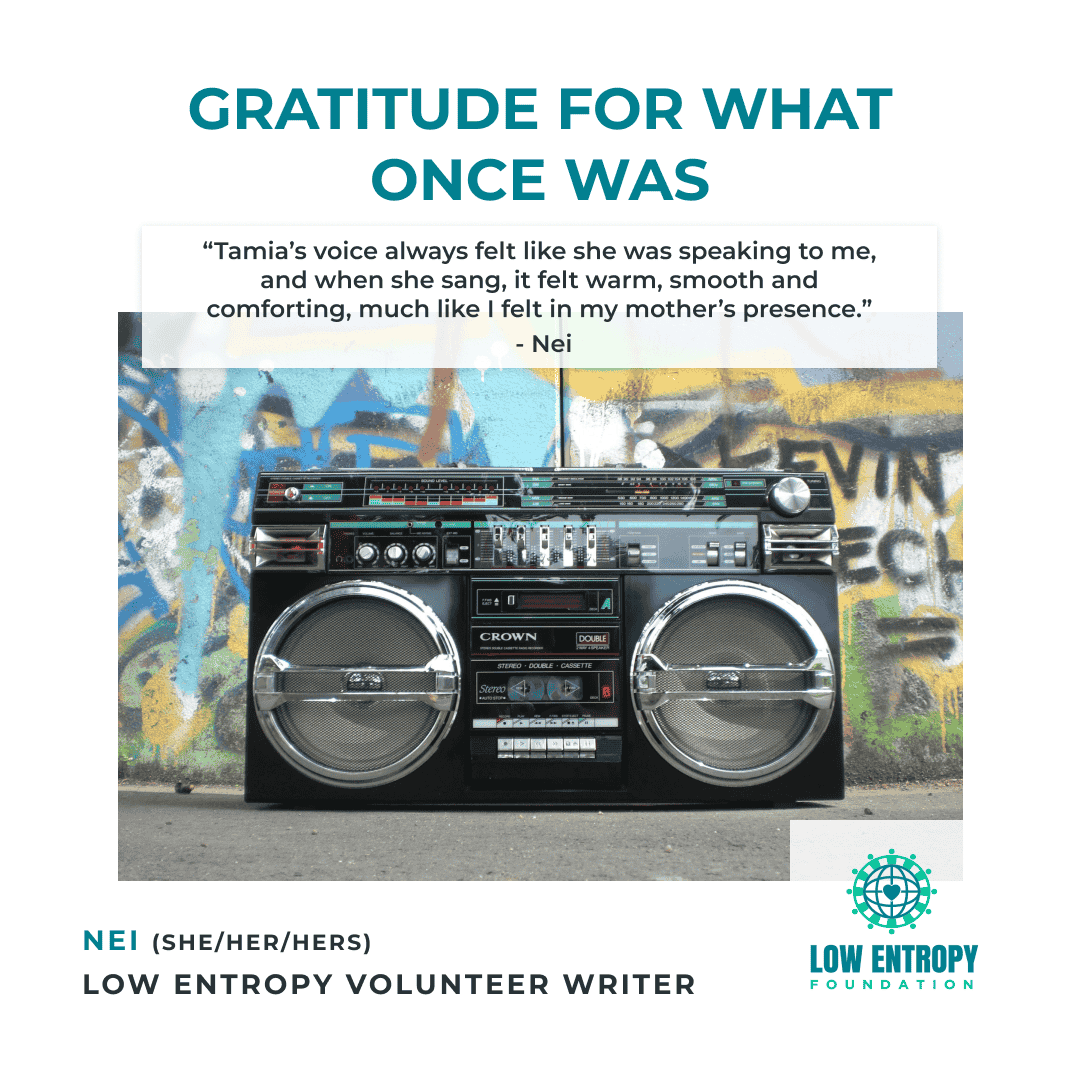Olivia Alberton (she/her/hers), Low Entropy Volunteer Writer
They say that you should enjoy your youth, because it goes by so fast. They say to stay young because getting old is hard. They say these are some of the best years of your life, so enjoy it. You are in the physical prime of your life, when there are no aches or pains in your body, nothing is sagging, nor do you have a grey hair in sight.
You can do anything you want, because time is on your side. You should take risks and not think too much, because you can afford to make mistakes. Being young seems to be equated with having fun and being carefree. Yes, there can be moments of fun, spontaneity and pleasure, however, this should not discredit the fact that much of one’s youth can also be filled with stress, loneliness and confusion. We must acknowledge the truth, that youth is not all it is cracked up to be.
One of the hardest parts of being young is trying to figure everything out. It starts in high school, when the guidance counsellor talks to you about what you want to do for the rest of your life. You select programs and make your decision, hoping you made the right one. Your brain is not even fully formed, and yet you have to make this big decision. It is unfair and unrealistic to place that burden on someone so young, but it is done anyways.
You go through your program and graduate, and everyone says you have entered the “real world” now. You apply to jobs because you now must establish yourself. Not only must you establish yourself, you also are trying to find your purpose. Yes, you are young, but it feels as though you are in this race where you should hit certain goals in your 20s—graduate by a certain age, start your career, move into your own place, get a partner, get engaged and, of course, get married—unrealistic yes, but hard to ignore. One can say that you have the freedom to forge your own path, but that in and of itself can be frightening when there are so many different options; you wish someone had a crystal ball to tell you what to do, because the endless choices can be daunting.
While you are trying to establish your career, you are also trying to discover who you are as a person. We change so much in our youth, from high school to post-secondary, to early 20s to late 20s, that it can be overwhelming at times. With this change and growth, we can lose close friendships that are difficult to move on from. Or other times, you sadly just lose touch with someone without meaning to. On a random Tuesday, you will think about them and want to reach out, but are not sure if there is a point because too much time has elapsed. Sadly, your youth can be a very lonely time when you find you can only rely on yourself.
There is also a lot of pressure that one contends with in their youth. The ones described already, of course, include pressure to sort out your career, pressure to figure out who you are/want to be in life and pressure to find your purpose. In addition, there is also the pressure to make sure you are enjoying your youth, because you are constantly being told that you will never be this young again. When you stay in on a Friday or Saturday night, there can be a sense of guilt because it feels like you should be out, either on a date or with friends, anywhere but on your couch. If by chance you do not have anything planned, you feel guilty because it feels as if you are missing out and you are wasting this precious time. All in all, the pressure to enjoy your youth can be overwhelming.
George Bernard Shaw’s well-known idea that youth is wasted on the young comes to mind when discussing youth. Of course, it is only as we age that we gain the experience and wisdom to reflect on things we wish we did differently or worried less about. However, when you are in the thick of it, you are just trying to make it through, day by day. We cannot know if what we are doing is right or if we will come to regret it because, sadly, life does not work like that. Sadly, we place these misguided but hard-to-ignore expectations in our youth, which can make things difficult. Therefore, youth is not all it is cracked up to be, however, we should try to believe that everything will be okay.
—
Olivia is a McMaster University graduate with a combined honours in English & cultural studies and history. She loves to read, write and, of course, drink coffee.







